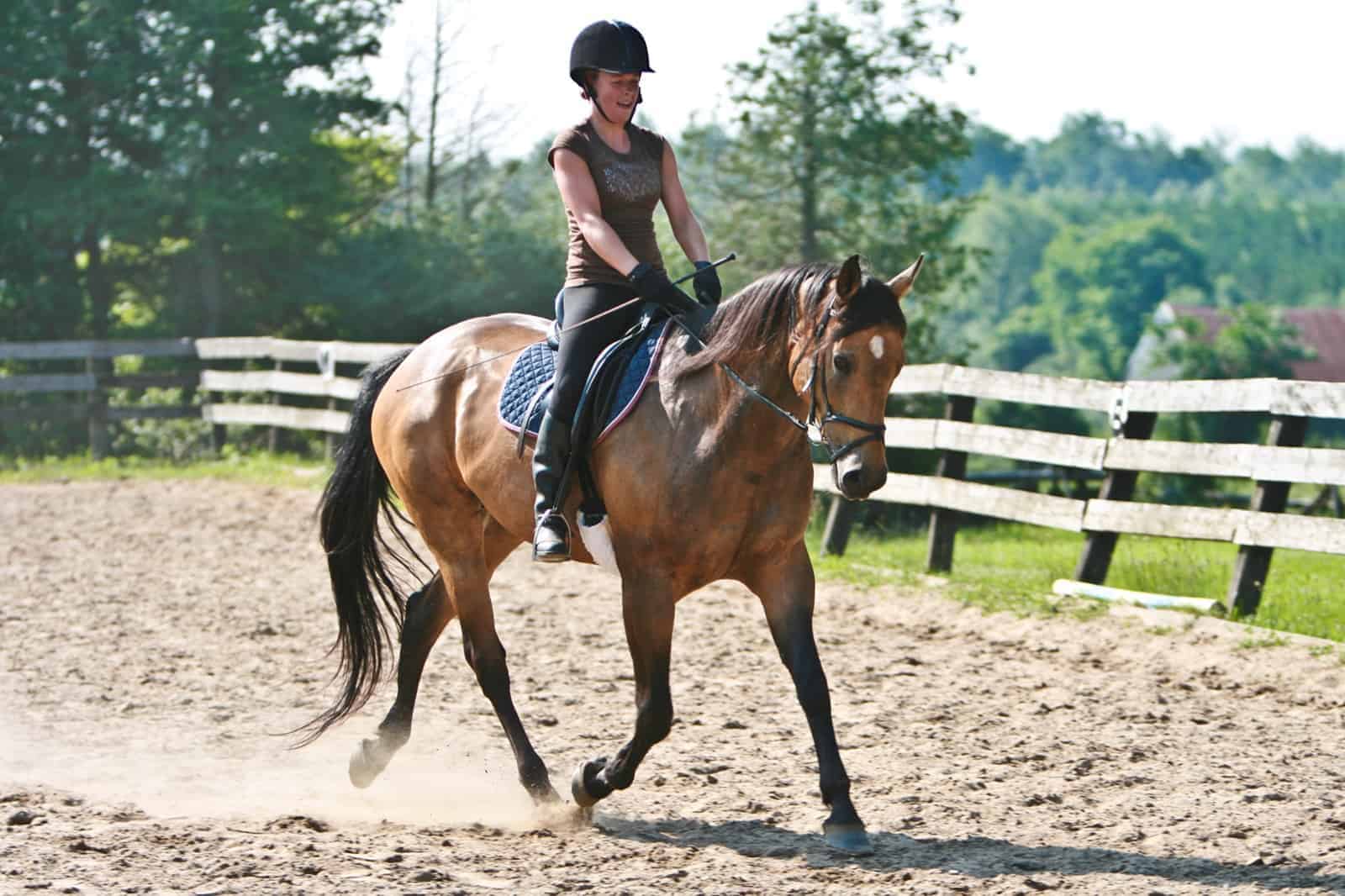
If you think a mare isn’t the best fit for dressage—or any other equine sport—you might be one of a large population of riders with a horse gender bias. In other words, you might think mares aren’t fit for some disciplines—such as dressage and eventing, for example—or that they are less reliable under saddle. But according to results of a new study involving more than 1,200 riders and their horses, mares don’t behave any differently under saddle than geldings.
“There’s always this qualifier when people describe mares, like ‘A good mare is hard to beat,’ or, ‘She’s a great mare, on a good day,’” said Kate Fenner, PhD candidate at the Sydney School of Veterinary Science at the University of Sydney, in Australia. “We keep believing mares are different, and we go into the horse-human relationship with these preconceived notions, and we can then jump to conclusions about her not behaving the way we want her to. But what we’ve found is that mares are no different under saddle from geldings.”
A Survey of More Than 1,200 Riders
Fenner and her fellow researchers analyzed data about riding and horse gender from 1,233 riders who completed surveys through the . Because riders were responding to about 300 questions about themselves and their horses on a wide variety of topics, they weren’t aware that researchers would be making connections between their horse’s sex and their descriptions of issues under saddle, Fenner said.
The researchers narrowed their search to approximately 150 questions about how the respondents’ horses behave when being prepared for riding or being ridden, she said. For example, they looked at the scores (from 1 to 5) people gave about how likely their horses were to show signs of conflict when asked to canter, to shy away from unfamiliar objects, to push handlers when offered food, to not stand still while being clipped without sedation, to whinny when separated from other horses, to act aggressively toward other horses in the arena, or to not respond to cues to slow down.
Mostly the Same on Ground and Under Saddle
They found that most questions had a less-than-5% difference in overall scoring between mares and geldings, Fenner said. In the few situations in which the difference was more significant, the geldings often had higher scores for unwanted behaviors. In particular, geldings were 20% more likely to chew their ropes when tied, 12% more likely to chew their rugs/saddle pads, 12% more likely to not hold still while getting their faces clipped, and 10% more likely to push handlers when offered food, she said. Mares, however, were 10% more likely to move away when being caught.
“We did find a few sex-related differences in behavior, but these were all related to nonridden situations,” said Fenner. “And contrary to popular ideas, it wasn’t the mares who were more complicated in these cases, except for getting caught in the paddock. It was the geldings who were showing the these largely unwanted behaviors.”
Suppressing the Stereotypes and Improving Welfare
Debunking stereotypes about mares doesn’t just clarify misunderstandings about their sex, she said. More importantly, it can lead to better welfare for mares.
“If you go into a riding session with this type of bias, you’re not going to be a proactive rider but a reactive one, and that forces you down the punishment road, reacting to or correcting the horse,” Fenner explained. “(Or you can) go into the ride assuming that if the mare doesn’t do what you wanted, it is because she didn’t understand. This way you can be proactive and prepared to teach the mare. And you can take responsibility for misunderstandings on yourself as a rider rather than blaming your horse for being a mare. You can tell yourself, ‘She didn’t do what I wanted her to do, because I didn’t explain it well enough.’ Giving her the benefit of the doubt is ultimately much better for her welfare.”
The researchers don’t know why mares often have a “bad reputation” and get stereotyped as being “bossy” or “difficult,” but the origins might be in anthropomorphism, said Fenner. “This might be coming from the human world,” she said. “Traditionally there are stereotypes against women, that they’re moody or bossy or difficult, and it’s possible that this has just transferred onto horses as well.”
Interestingly, she said, this doesn’t seem to be such a phenomenon in other species, such as dogs. “It’s an entirely different angle to explore and research further,” she said.
"difficult" - Google News
September 06, 2020 at 07:02PM
https://ift.tt/2DD7ZRA
Study: Mares Not “More Difficult” Than Geldings - TheHorse.com
"difficult" - Google News
https://ift.tt/2VWzYBO
https://ift.tt/3d5eskc
Bagikan Berita Ini














0 Response to "Study: Mares Not “More Difficult” Than Geldings - TheHorse.com"
Post a Comment